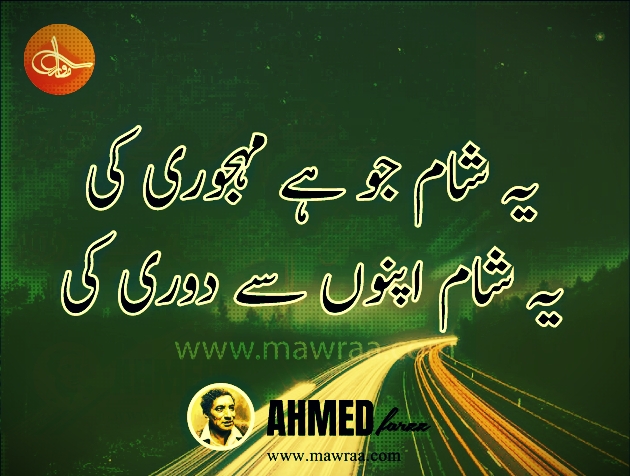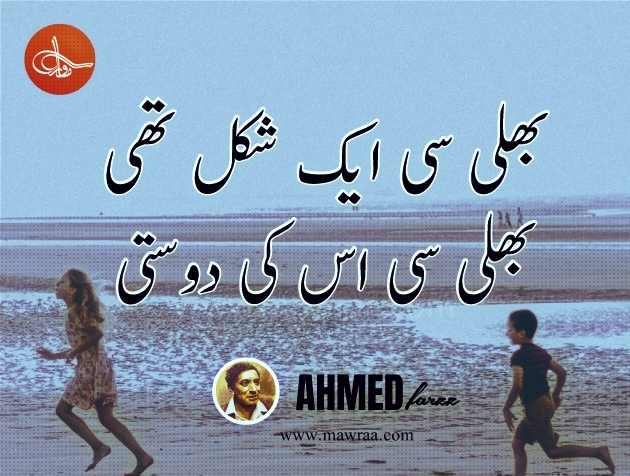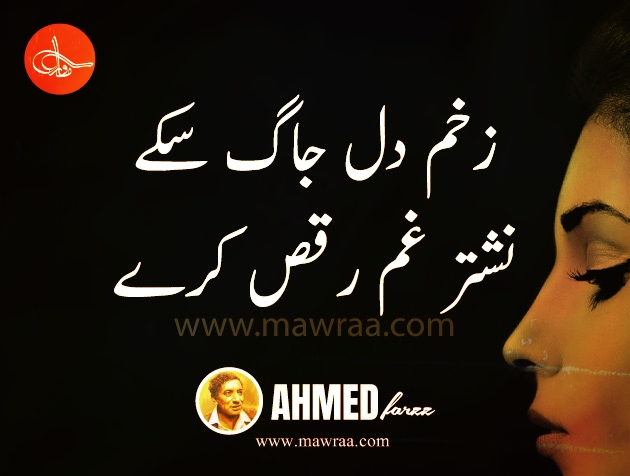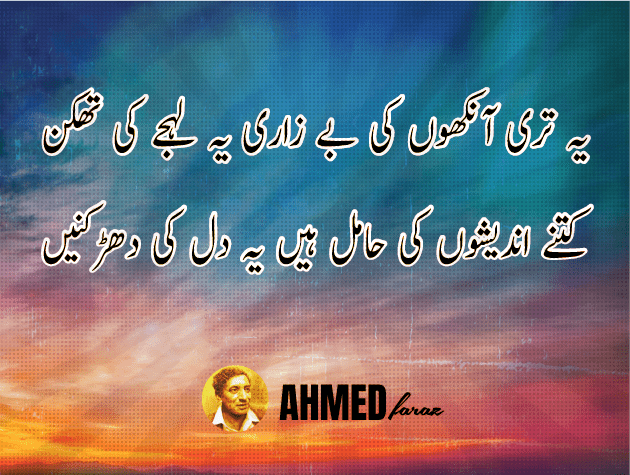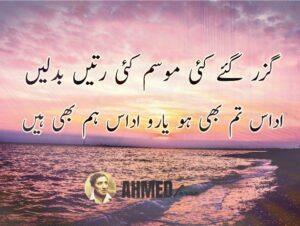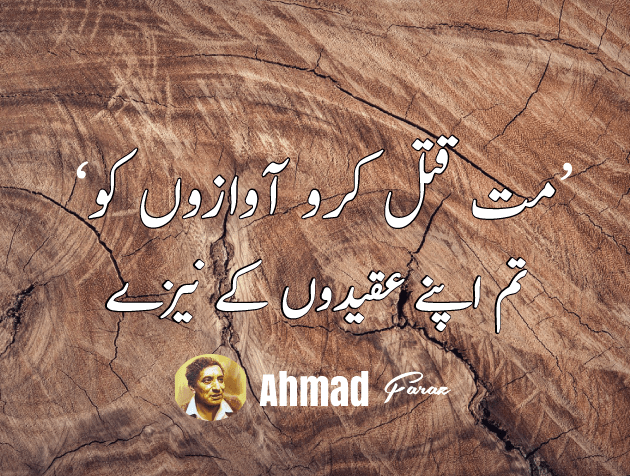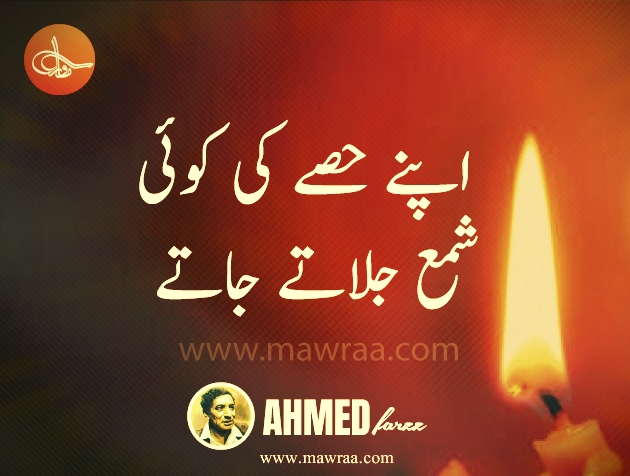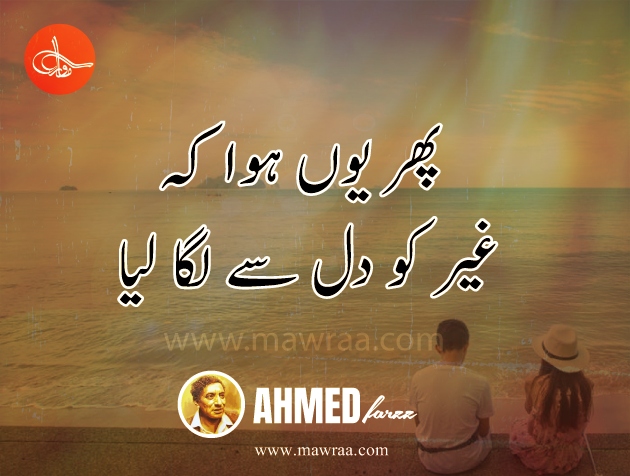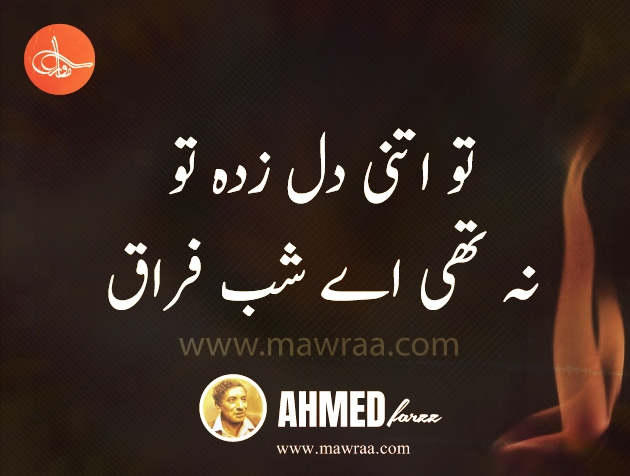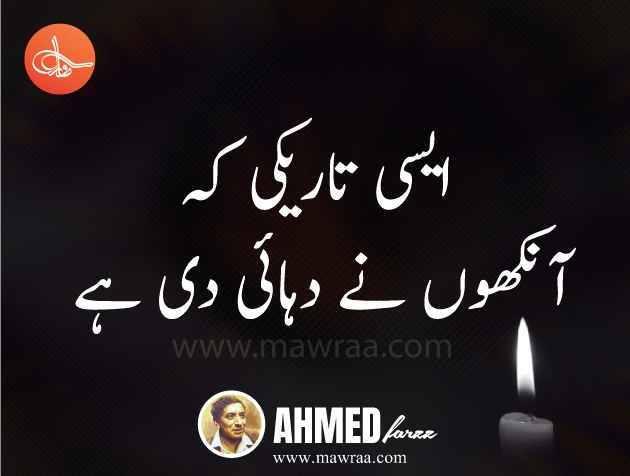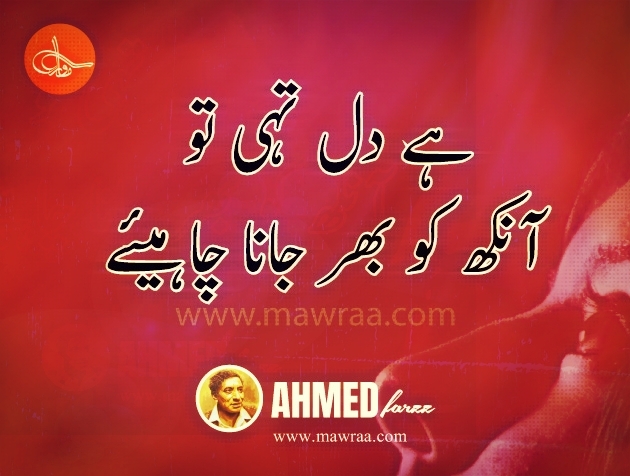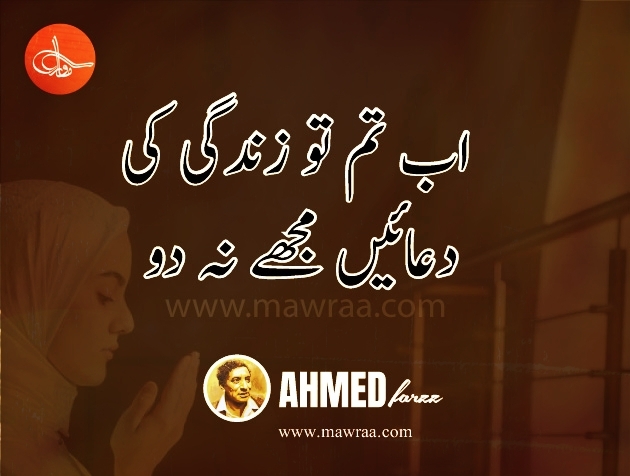Ahmad Faraz Introduction:
Ahmad Faraz, born on January 12, 1931, in Kohat, Pakistan, is widely regarded as one of the greatest Urdu poets of the twentieth century. He was a distinguished poet, writer, and politician who left a lasting impression on Urdu poetry with his distinct style, progressive ideas, and love for humanity. Faraz’s best-known poetry reflects the hopes, fears, and struggles of ordinary people, covering the genres of romantic, social, and political poetry.
Ahmad Faraz Early Life and Education:
Ahmad Faraz was born in Kohat, a small town in Pakistan’s North-West Frontier Province, into a Pashtun family (now Khyber Pakhtunkhwa). He received his primary education in Kohat before moving on to higher education in Peshawar. Faraz earned his Master’s degree in Urdu from the University of Peshawar, where he discovered a passion for poetry and literature.
A Career in Literature:
Faraz’s first collection of poems, “Pahle Apna Dhunya Hathon” (First, cleanse your own world), was published in 1955, which earned him critical acclaim and recognition as a talented poet. He continued to publish several other collections of poetry, including “Khwab Gaey” (Dreams Gone), “Nazmein” (Poems), “Sar-e-Wadi-e-Seena” (The Top of the Heart’s Valley), and “Main Nay Kaha” (I Said), among others. The masses find Faraz’s poetry appealing due to its simplicity, lyrical beauty, and emotional depth, which characterize his work.
Famous Works of Ahmad Faraz
Pahle Apna Dhunya Hathon (First, Cleanse Your Own World) – This was Faraz’s first collection of poems and marked his debut as a poet. It established him as a talented poet and earned him critical acclaim.
Khwab Gaey Critics widely regard (Dreams Gone) as one of Faraz’s masterpieces. It reflects his social and political views and deals with the struggles of common people.
Nazmein (Poems) – This collection of poems showcases Faraz’s unique style, lyrical beauty, and emotional depth. It includes some of his most famous poems, such as “Sar-e-Wadi-e-Seena” (The Top of the Heart’s Valley) and “Main Nay Kaha” (I Said).
Tum Meri Zindagi Ho (You are My Life) – This collection of poems deals with Faraz’s romantic and personal experiences and reflects his deep love for humanity.
Critics consider Humnasheen (The Homeless) as Faraz’s most political work, which reflects his views on social and political issues.
Famous Poems
Sar-e-Wadi-e-Seena (The Top of the Heart’s Valley) – This is a beautiful and lyrical poem that reflects Faraz’s love for humanity. It expresses the pain of a broken heart and the hope of finding love and happiness again.
Main Nay Kaha (I Said) – This is one of Faraz’s most famous poems, which reflects his deep love for humanity. It is a celebration of life and a call to action for people to make the world a better place.
Hum Gunahgaar Hain (We are Sinners) – This poem reflects Faraz’s views on social and political issues, and deals with the struggles of common people. It is a powerful call to action for people to work towards a better world.
Awards and Recognitions
The Urdu poetry and literature community widely recognized Ahmad Faraz for his contributions. Some of his notable awards and recognitions include
Presidential Pride of Performance Award
The authorities awarded Faraz one of Pakistan’s highest civilian awards in 1979 in recognition of his contributions to Urdu poetry and literature.
Sitara-e-Imtiaz
The Government of Pakistan awarded Faraz another prestigious award in 1999 in recognition of his outstanding contributions to Urdu poetry.
Tamgha-e-Husn-e-Karkrdagi
This award was given to Faraz by the Pakistan Academy of Letters in 1990. In recognition of his exceptional talent and contributions to Urdu poetry.
Pakistan Academy of Letters Award –
This award was presented to Faraz in 1991 for his contributions to Urdu literature and poetry.
All Pakistan Artists Association Award
This award was presented to Faraz in 2006 for his outstanding contributions to Pakistani arts and culture.
Social and Political Views:
Ahmad Faraz was a progressive thinker and a staunch critic of religious fundamentalism, military dictatorship, and social inequality. He believed in secularism, democracy, and human rights, and expressed his views through his poetry. Faraz’s poems often dealt with the struggles of common people, the plight of the oppressed, and the quest for freedom and justice. He was a strong advocate of peace and advocated for a non-violent resolution to conflicts.
Later Life and Death:
Ahmad Faraz was a prominent figure in Pakistani politics and served as a senator in the Senate of Pakistan from 1991 to 1997. He continued to write and publish poetry until his death on August 25, 2008, in Islamabad, Pakistan. The authorities posthumously awarded Faraz several prestigious awards, including the Presidential Pride of Performance Award. And the Sitara-e-Imtiaz, in recognition of his contributions to Urdu poetry and literature.
Conclusion:
Ahmad Faraz was a poet of the people, whose poetry reflects the hopes, fears, and struggles of ordinary people. He was a progressive thinker, a strong advocate of peace, and a defender of human rights. Who left a profound impact on Urdu poetry. Faraz’s simple, lyrical, and emotional poetry inspires generations of poets and remains widely read and revered by Urdu-speaking communities worldwide. The recognition of Faraz as an important figure in Pakistani literature . And the remembrance of his contributions to Urdu poetry will always exist.



